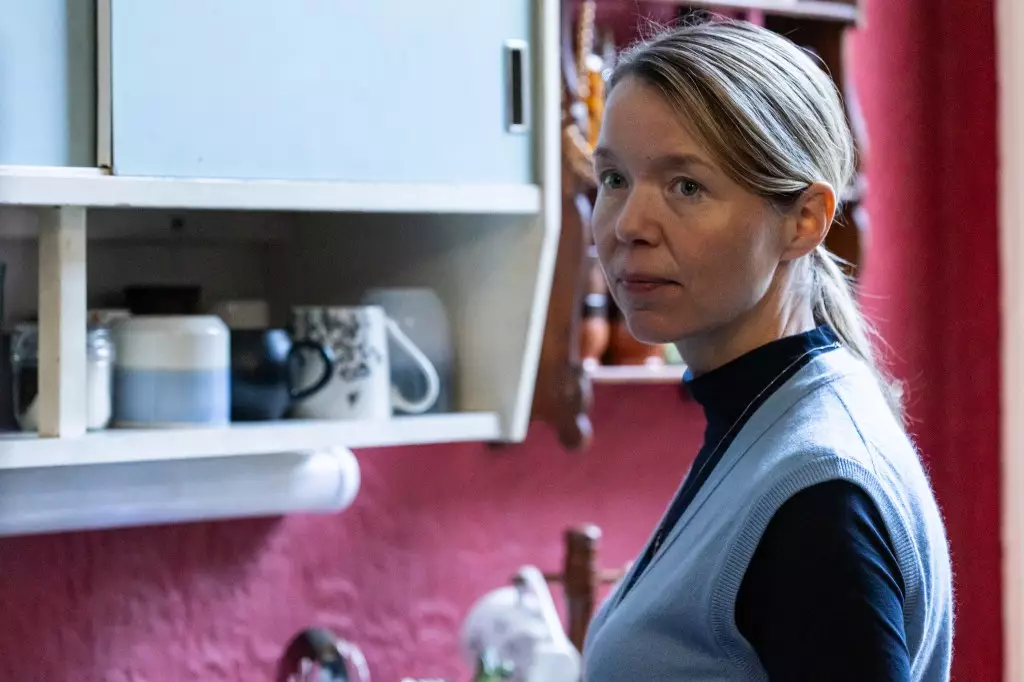Jimmy McGovern’s latest creation, *Unforgivable*, ambitiously tackles the harrowing subject of sexual abuse and institutional betrayal—an area fraught with emotional rawness and societal importance. At its core, the series aims to scrutinize the flawed mechanisms of the justice system and the long-lasting scars inflicted upon victims and their families. While the premise is compelling, its execution invites a critical eye for both its strengths and glaring shortcomings. The series boldly ventures into uncomfortable terrain, but it sometimes stumbles into sensationalism, risking alienating viewers who seek nuanced understanding over shock.
This drama’s commitment to realism is evident—its setting in Liverpool gives it an authentic regional flavor, grounding the story in a believable context. The cast features powerhouse performances from Anna Maxwell-Martin and Anna Friel, who lend depth and emotional authenticity to their roles. However, the series’ portrayal of complex characters often feels oversimplified, veering toward melodrama in its pursuit of catharsis. The narrative struggles to balance moral outrage with empathetic storytelling, occasionally falling into the trap of vilifying offenders without exploring the psychosocial factors or institutional failures that perpetuate abuse. This one-sided framing might evoke visceral reactions but ultimately hampers a comprehensive dialogue on systemic reform and empathy.
The storytelling technique is visually arresting, with stark cinematography mirroring the dark themes explored. Yet, the plot’s pacing is uneven, sometimes rushing through critical moments, diluting their emotional impact. For a series delving into such sensitive issues, this hurried approach can feel dismissive, reducing the chances for viewers to process the gravity of the situations depicted. It’s a reminder that tackling societal taboos requires not just confrontational scenes but thoughtful, layered storytelling that encourages reflection rather than just shock.
Melodrama Over Substance: A Missed Opportunity for Deeper Dialogue
While *Unforgivable* ambitiously attempts to spark a national conversation about abuse and accountability, it often succumbs to the pitfalls of television sensationalism. The character of Joe, played by Bobby Schofield, is presented as a rehabilitated man seeking redemption—a trope that simplifies the complex process of healing and reintegration. The therapy scenes, featuring Maxwell-Martin’s ex-nun character, are emotionally charged but sometimes feel formulaic, serving as mere devices to propel the storyline rather than genuinely probing the intricacies of trauma and forgiveness.
It’s here that the series’ liberal center, advocating for compassion and systemic change, is both challenged and betrayed. The show veers toward portraying institutions as either unequivocally villainous or helpless, neglecting the nuanced reality of ongoing reforms and the efforts of dedicated individuals working tirelessly to protect the vulnerable. This black-and-white depiction risks alienating viewers who believe in reform and community resilience—values central to center-wing liberalism.
Furthermore, the series seems to prioritize producing shock value over fostering constructive dialogue. Scenes are crafted to evoke strong emotional reactions, sometimes at the expense of nuanced storytelling. While emotional engagement is crucial, it must not come at the cost of the complexity needed to truly understand the multifaceted nature of abuse, justice, and healing. Redirecting the narrative toward empathy, systemic accountability, and realistic pathways to recovery would have been a more meaningful approach—one that aligns with the center-left’s emphasis on social justice and collective responsibility.
Powerful Cast, Flawed Execution
Anna Maxwell-Martin’s performance as Katherine, an ex-nun therapist, offers a glimmer of hope amidst the gloom; she embodies the struggles and moral dilemmas faced by those dedicated to helping victims rebuild their lives. Anna Friel’s portrayal of the sister’s profound pain adds further emotional weight, arguably the most compelling elements of the series. Yet, even these strong performances cannot mask the series’ reliance on emotionally manipulative tropes—moments designed less for character development and more for audience shock and horror.
The series’ production choices make substantial efforts to evoke visceral reactions, but they often lack the subtlety necessary for lasting impact. Instead of engaging viewers in meaningful reflection, it risks sensationalizing the trauma for dramatic effect. For those viewers seeking a balanced discussion on the failures of institutions and societal complicity, *Unforgivable* may feel more like a cathartic spectacle than a catalyst for genuine understanding.
The show’s focus on individual stories, while powerful, neglects the broader systemic insights that could turn this from a sensationalist drama into an insightful social critique. Real progress on issues of abuse depends not only on exposing individual failings but also on addressing the cultural, legal, and institutional frameworks that enable such crimes to persist. A more comprehensive approach would elevate *Unforgivable* from a gut-wrenching tale to a meaningful tool for social change—something that, perhaps, its creators intended but did not fully realize.
In the end, *Unforgivable* presents a provocative depiction of institutional failure, trauma, and the quest for redemption. Its emotional strength and compelling performances are undeniable, yet its shortcomings—over-sensationalism, superficial characterizations, and a missed opportunity for deeper societal critique—limit its potential. For a series that aims to confront uncomfortable truths, it falls short of inspiring the nuanced conversations needed in a society still grappling with these devastating issues.



Leave a Reply